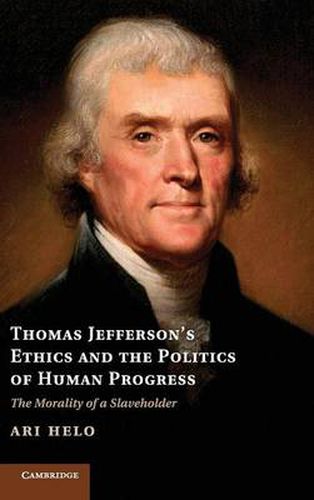Readings Newsletter
Become a Readings Member to make your shopping experience even easier.
Sign in or sign up for free!
You’re not far away from qualifying for FREE standard shipping within Australia
You’ve qualified for FREE standard shipping within Australia
The cart is loading…






Could Jefferson claim any consistency in his advocacy of democracy and the rights of man while remaining one of the largest slaveholders in Virginia? This extensive study of Jefferson’s intellectual outlook suggests that, once we fully acknowledge the premises of his ethical thought and his now outdated scientific views, he could. Jefferson famously thought the human mind to be ‘susceptible of much improvement … most of all, in matters of government and religion’. Ari Helo’s thorough analysis of Jefferson’s understanding of Christian morality, atheism, contemporary theories of moral sentiments, ancient virtue ethics, natural rights, and the principles of justice and benevolence suggests that Jefferson refused to be a philosopher, and did so for moral reasons. This book finds Jefferson profoundly political in his understanding of individual moral responsibility and human progress.
$9.00 standard shipping within Australia
FREE standard shipping within Australia for orders over $100.00
Express & International shipping calculated at checkout
Could Jefferson claim any consistency in his advocacy of democracy and the rights of man while remaining one of the largest slaveholders in Virginia? This extensive study of Jefferson’s intellectual outlook suggests that, once we fully acknowledge the premises of his ethical thought and his now outdated scientific views, he could. Jefferson famously thought the human mind to be ‘susceptible of much improvement … most of all, in matters of government and religion’. Ari Helo’s thorough analysis of Jefferson’s understanding of Christian morality, atheism, contemporary theories of moral sentiments, ancient virtue ethics, natural rights, and the principles of justice and benevolence suggests that Jefferson refused to be a philosopher, and did so for moral reasons. This book finds Jefferson profoundly political in his understanding of individual moral responsibility and human progress.